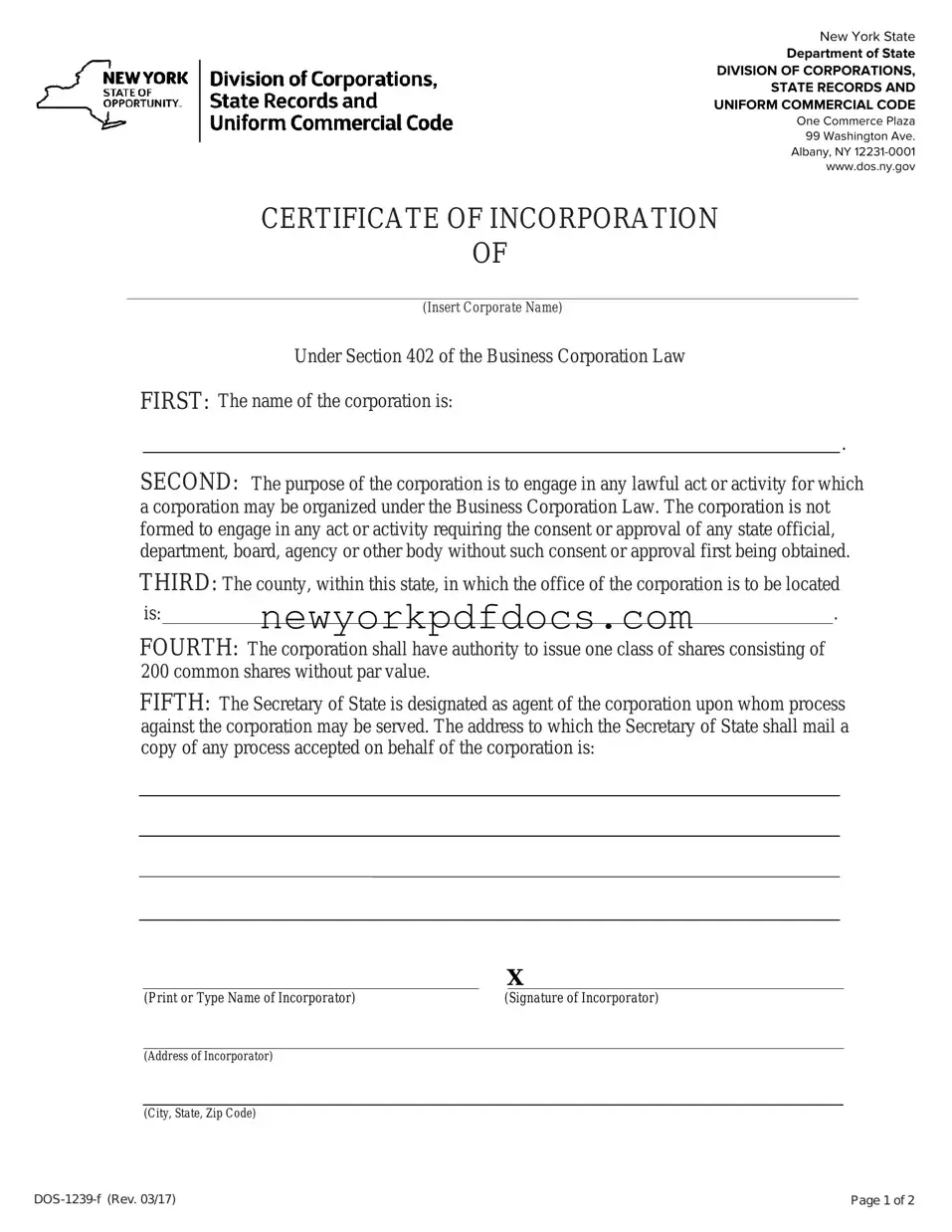New York State
Department of State
DIVISION OF CORPORATIONS,
STATE RECORDS AND
UNIFORM COMMERCIAL CODE
One Commerce Plaza
99 Washington Ave.
Albany, NY 12231-0001
www.dos.ny.gov
CERTIFICATE OF INCORPORATION
OF
(Insert Corporate Name)
Under Section 402 of the Business Corporation Law
FIRST: The name of the corporation is:
.
SECOND: The purpose of the corporation is to engage in any lawful act or activity for which a corporation may be organized under the Business Corporation Law. The corporation is not formed to engage in any act or activity requiring the consent or approval of any state official, department, board, agency or other body without such consent or approval first being obtained.
THIRD: The county, within this state, in which the office of the corporation is to be located
FOURTH: The corporation shall have authority to issue one class of shares consisting of 200 common shares without par value.
FIFTH: The Secretary of State is designated as agent of the corporation upon whom process against the corporation may be served. The address to which the Secretary of State shall mail a copy of any process accepted on behalf of the corporation is:
|
X |
(Print or Type Name of Incorporator) |
|
(Signature of Incorporator) |
(Address of Incorporator)
(City, State, Zip Code)
DOS-1239-f (Rev. 03/17) |
Page 1 of 2 |
CERTIFICATE OF INCORPORATION
OF
(Insert Corporate Name)
Under Section 402 of the Business Corporation Law
Filer’s Name and Mailing Address:
Name:
Company, if Applicable:
Mailing Address:
City, State and Zip Code:
Notes:
1.This form was prepared by the New York State Department of State for filing a certificate of incorporation for a business corporation. It does not contain all optional provisions under the law. You are not required to use this form. You may draft your own form or use forms available at legal stationery stores.
2.The Department of State recommends that legal documents be prepared under the guidance of an attorney.
3.The fee for filing a certificate of incorporation is $125. Checks should be made payable to the Department of State.
4.The incorporator must be a natural person, not a corporation or other business entity.
5.The filer may not be the corporation being formed.
For DOS use only
DOS-1239-f (Rev. 03/17) |
Page 2 of 2 |



